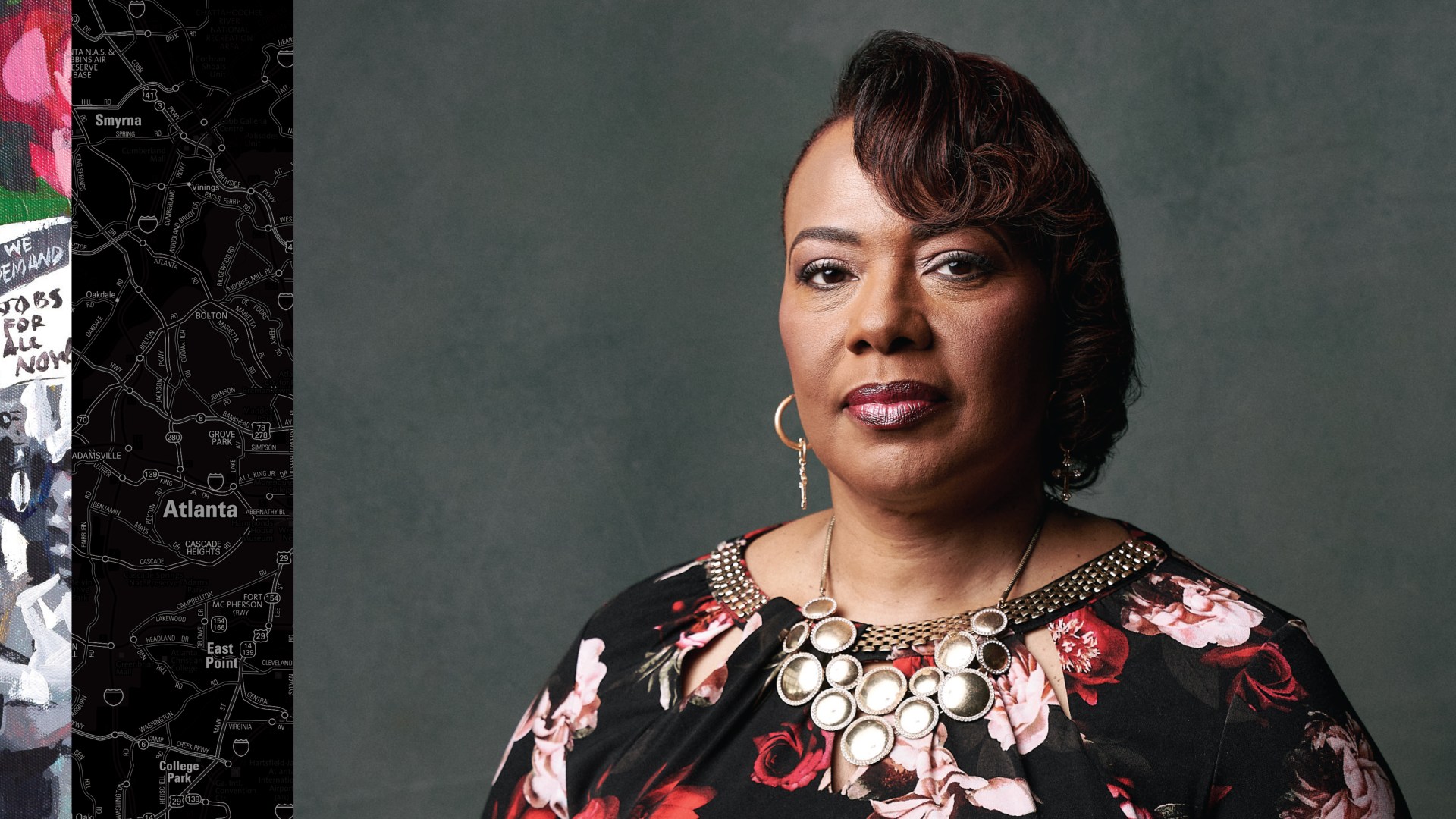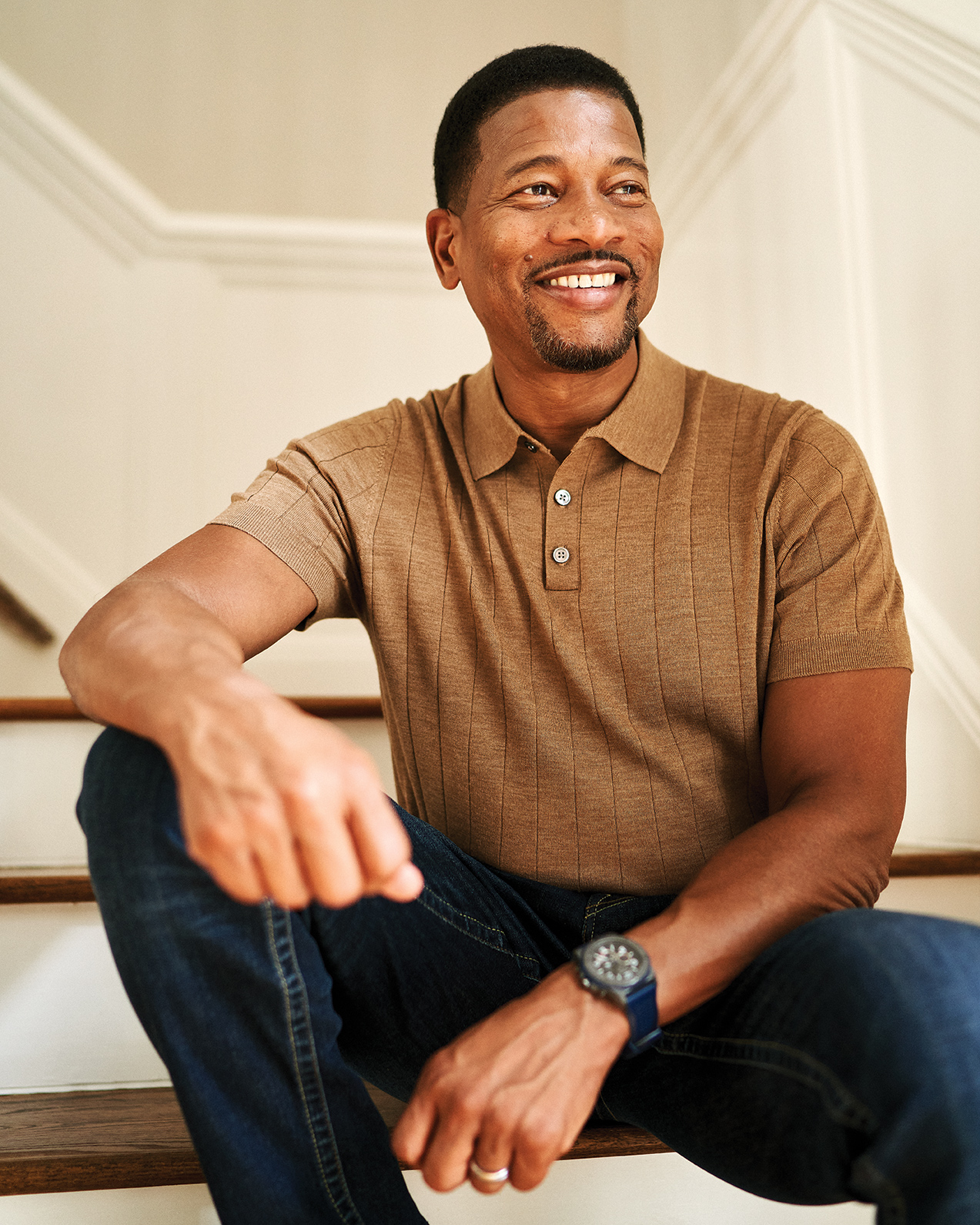From my apartment in Midtown Atlanta, I could hear the helicopters above the protesters after the murder of Rayshard Brooks in June. By then, demonstrators had been in the streets for weeks, incensed by the recent killings of George Floyd, Breonna Taylor, and Ahmaud Arbery.
In cities across the country, crowds were marching for black lives and praying for racial justice. Yet this national movement took on a different magnitude in Atlanta, a city shaped by the faith, activism, and political prowess of its African American forebears.
Much of the same could be said about black hubs like Detroit, Houston, Harlem, and Washington, DC. But there is a unique echo for justice in Atlanta, where leaders have walked the same streets and stood in the same pulpits as civil rights heroes who came before them. The Southern capital—a dreamed-of “black mecca” and the major metropolitan area with the highest concentration of black Christians in the US—has this history in its bedrock.
As Coretta Scott King, the civil rights leader and wife of Martin Luther King Jr., said, “Struggle is a never-ending process. Freedom is never really won; you earn it and win it in every generation.”
I think of the black men and women of my generation—recently called the Trayvon Generation by poet Elizabeth Alexander. We were raised to be aware of the ever-present threat to black lives because it was right in front of our faces, in headlines and on our Instagram feeds. Amid a very public conversation about racism and equity in America, we can see signs of progress. But as long as we find ourselves continually angry and mourning over another black death, we are far from being able to call these small iterations of progress freedom.
In Atlanta, it feels like we are living in between the current racial justice movement still unfolding and the civil rights movement that began in 1954. I simultaneously feel the urgency in the fight for my humanity now and the desire to acknowledge all of the contributions of the civil rights heroes of old.
Both are part of the spirit of the city today. To understand Atlanta, you must look to the deep history of black suffering and the indomitable will and gospel hope of its African American community.
 Photograph by Ben Rollins
Photograph by Ben RollinsAlmost always, when you hear a prominent story of black success and progress in Atlanta, it connects somehow to the legacy of the black church. The beloved Atlanta businessman Herman J. Russell, whose construction empire built landmarks like Turner Field and the Hartsfield-Jackson Atlanta International Airport, cited his pastor as the greatest influence on his career.
“For most African Americans, church was the only place we could be somebody. It was there we did not have to prove our worth or our humanity. It was in church that we could act dignified without being chastised or threatened with harm for ‘acting uppity,’ ” wrote Russell, a friend of Martin Luther King Jr. who helped fund civil rights efforts and aided in the election of Atlanta’s first black mayor, Maynard Jackson, in 1973. “Church was the place all black folks, young and old, felt safe, loved, and affirmed.”
The black church has been a literal rallying point in Atlanta for more than 150 years. The fires of black justice and economic freedom were especially stoked in Atlanta during the washerwomen’s strike in July of 1881, when a handful of black laundresses met in a church in Summerhill, one of the city’s oldest black neighborhoods, to organize for fairer wages and treatment. Black preachers helped spread the domestic workers’ message, and soon more than 3,000 women went on strike. When a police captain was asked what the women did at their meetings, he said, “Make speeches and pray.”
Church basements housed the earliest classes for what have since become the city’s prestigious historically black colleges and universities: Clark Atlanta University, Morehouse College, and Spelman College. They started as ministry training programs and grew with the assistance of Protestant missionary societies that supported abolition and black education.
The legacy of faith and education in Atlanta provided one of the few groundswells for African American prosperity, even though seemingly every iteration of black progress was met with an increased amount of white violence. But even formerly enslaved men—such as Alonzo Herndon, the city’s first black millionaire—steadily developed economic capital and cultural credibility in the early part of the 20th century.
Auburn Avenue developed into a center for black business and community building. Its oldest church, Big Bethel African Methodist Episcopal, was known as “Sweet Auburn’s City Hall.” The growing Ebenezer Baptist Church also made its home on the street, its preachers encouraging congregants to become homeowners and “get a piece of the turf” in the bustling district. Martin Luther King Jr. saw his grandfather and father lead Ebenezer, and he co-pastored the church during the final years of his life.
Black Christians have long looked to God as a divine Deliverer, Redeemer, Healer, and Judge in the face of the absurd reality of racism. Martin Luther King Jr. built on those biblical teachings around deliverance by fusing them with the political promises of democracy, freedom, and equality—embracing the prophetic black church tradition alongside American civil religion.
At times unseen and at times marching front and center, the black church has been at the core of each iteration of America’s struggle for freedom, convicting America of its failure to hold to its foundational ideals. The American conscience was steeped in white supremacy and a form of capitalism that disregarded the life, liberty, and pursuit of happiness of the nation’s nonwhite citizens.
For Martin Luther King Jr., injustices against the economically disenfranchised and black people did not just violate the principles of the kingdom of God; they put America on a road to self-destruction. And so he rallied supporters, fellow black believers in particular, to boycott against segregation, register to vote, and proclaim a different vision for the country, a beloved community of justice and peace. His prophetic faith demanded social change, but also nonviolence.
Martin Luther King Jr.’s life is one reminder that the story of Atlanta is built upon the mountains of resilience and deep conviction. His death reminds us that the movement has come at the great cost of many lives and the emotional well-being of image-bearers seeking justice. That’s not specific to the city. America has long been a nation unwilling to receive its spiritual resuscitation without first being marred by tragedy and black death.
Though overcome with grief from her husband’s assassination and frustrated with the daunting fight that lay ahead for the movement he had begun, Coretta Scott King did not let her husband’s legacy die with him in 1968. She considered it her call from God to take the charge, even at a time when black women were not widely celebrated as leaders.
“She had a spiritual strength that gave her the ability to do what she did without hesitation,” said Bernice A. King, the CEO of The King Center, the organization founded by her mother and the place where I work today.
“Her confidence in her calling was undergirded by her prayer life,” she told me. “I recall a time in 1990 when I saw my mother seemingly wrestling with God. I walked into her room and heard her saying, ‘Whenever I pray, I am on the right path. Whenever I don’t, I get off.’ This served as a confirmation for me that everything my mother did was formed in prayer.”
On a national level, Coretta Scott King worked with legislators to establish the holiday in his honor. In Atlanta, she worked to preserve historic Auburn Avenue and founded the Historic District Development Corporation, which helps to provide affordable housing in the Old Fourth Ward community to this day. Her King Center houses millions of civil rights–era documents and draws in a million visitors a year. Coretta Scott King’s efforts are forever tied to the spiritual, social, and political fight for freedom in the city of Atlanta.
And the work continues. Bernice A. King echoes her mother’s words, saying now, “The freedom struggle connects us from generation to generation. There are things that we can extract from our elders. . . . There’s a strength and courage and tenacity in the younger generation that is so important to the movement for freedom.”
Through The King Center, kids as young as toddlers and teens participate in long-term training to develop philosophies around anti-racism and nonviolence. They too are caught between the very contemporary realities of the world, with smartphones in their pockets and increasingly diverse classrooms around them, and the still-relevant strategies in the fight for freedom.
For them, the place of the church in the racial justice movement may have shifted, according to my pastor, Lee Jenkins. The church still has the prophetic voice to lead on issues of righteousness and justice, he said, but it needs to speak up.
The Atlanta native—a former manager of Kirk Franklin who built a successful career as an investment adviser—sees the movement extending across all areas of life.
“In 2020, engagement looks different. We need activism from the street to the boardroom,” said Jenkins, who leads Eagles Nest Church in Alpharetta, Georgia. “The church needs to be leading the charge. It is just as important to build street prophets as boardroom prophets. That is how we are aiming to train people.”
In 2020, as black blood has been poured out yet again onto the streets of America, we are at a crossroads. In the words of Martin Luther King Jr., where do we go from here? Are our city and our country still on the journey away from the vestiges of white supremacy and toward the more hopeful claim of the beloved community?
The aim of this article-—and the articles that follow it—is not merely to capture a historical backdrop of the legacy of faith and activism in Atlanta but to beckon everyone, everywhere, to participate in the story.
Countless people have sacrificed to make Atlanta what it is today. Just as we are required to be “doers” of the Word in the Book of James, the door has been flung open for all of us to join together in the work of the same God, the same Spirit, the same Word that inspired the civil rights leaders of past and present to see, hear, and act.
The task of dismantling racism and other forms of injustice is mighty, and it requires all of us to be actively engaged with the mission of justice. But the good news is that the kingdom of God is not a faraway existence available to us only upon death. Rather, it is here, active and present in our midst.
Cameron Friend is a minister, speaker, and writer in Atlanta, where he works for The King Center. He holds a bachelor’s degree in political science and philosophy from the University of Northern Colorado and a master’s of divinity from Baylor University’s Truett Theological Seminary. Read the the rest of the series here:














